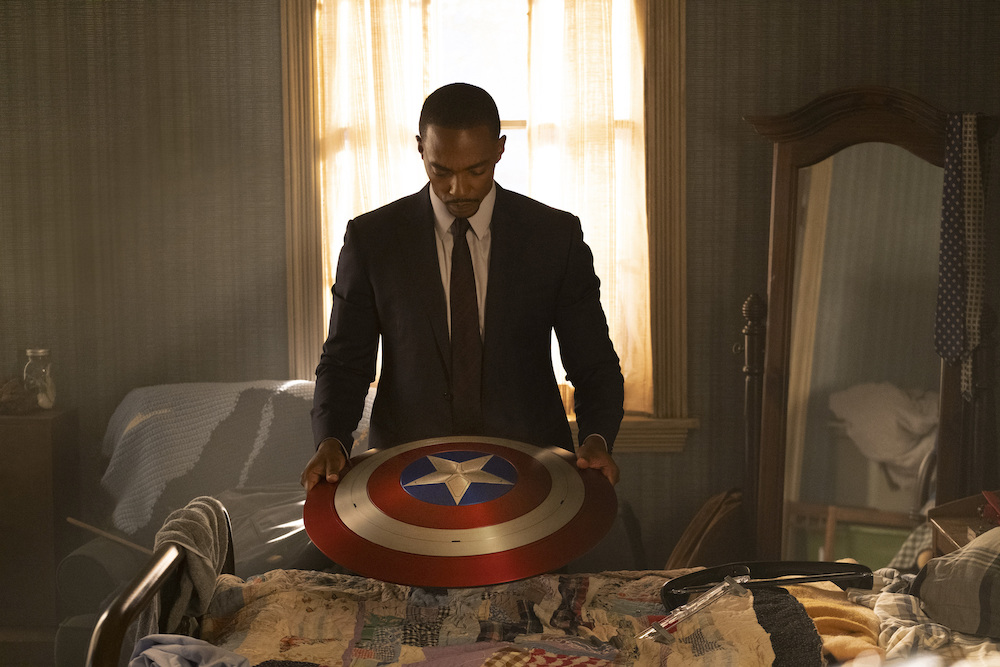
Photo by Chuck Zlotnick © Marvel Studios 2020
In Shakespeare’s The Tempest: Act 2, Scene I, Antonio, the titular character’s brother, utters, “Whereof what’s past is prologue; what to come, in yours and my discharge.” Reminding us that the past is written but the future is yours to wield—subject to the choices you decide to make. As I watch The Falcon and The Winter Soldier (TFATWS), Marvel’s small screen blockbuster on Disney+, these words echo in my head.
The series explores Sam Wilson’s (Anthony Mackie) rise from Falcon to becoming the new Captain America, a beacon of freedom and hope in the USA, following the events of Avengers: Endgame (2019). It also follows the Winter Soldier, Bucky Barnes’ (Sebastian Stan) reckoning with a bloody history filled with abuse, violence, and trauma. Both men struggle to discover “normal” in a world that is no longer, nor will ever be normal again. While I have never been a winged-hero or gone on a brain-washed murder-hobo killing spree, only to later search for redemption, I can certainly identify with that search for “normal,” especially in these…unprecedented times.
While dissecting this series could be a class at UC Berkeley in and of itself, the central storyline of TFATWS that I want to explore is Sam’s journey to becoming the new Captain America. Steve Rogers was the first and, to some, the ONLY Captain America. Despite being created for it, in the end, he chose not to represent a nationalistic vision of a “superpower.” Instead, Steve decided to represent its ideals—Truth, Justice, Life, Liberty; All are created equal. He was the face of those values, and they are his legacy.
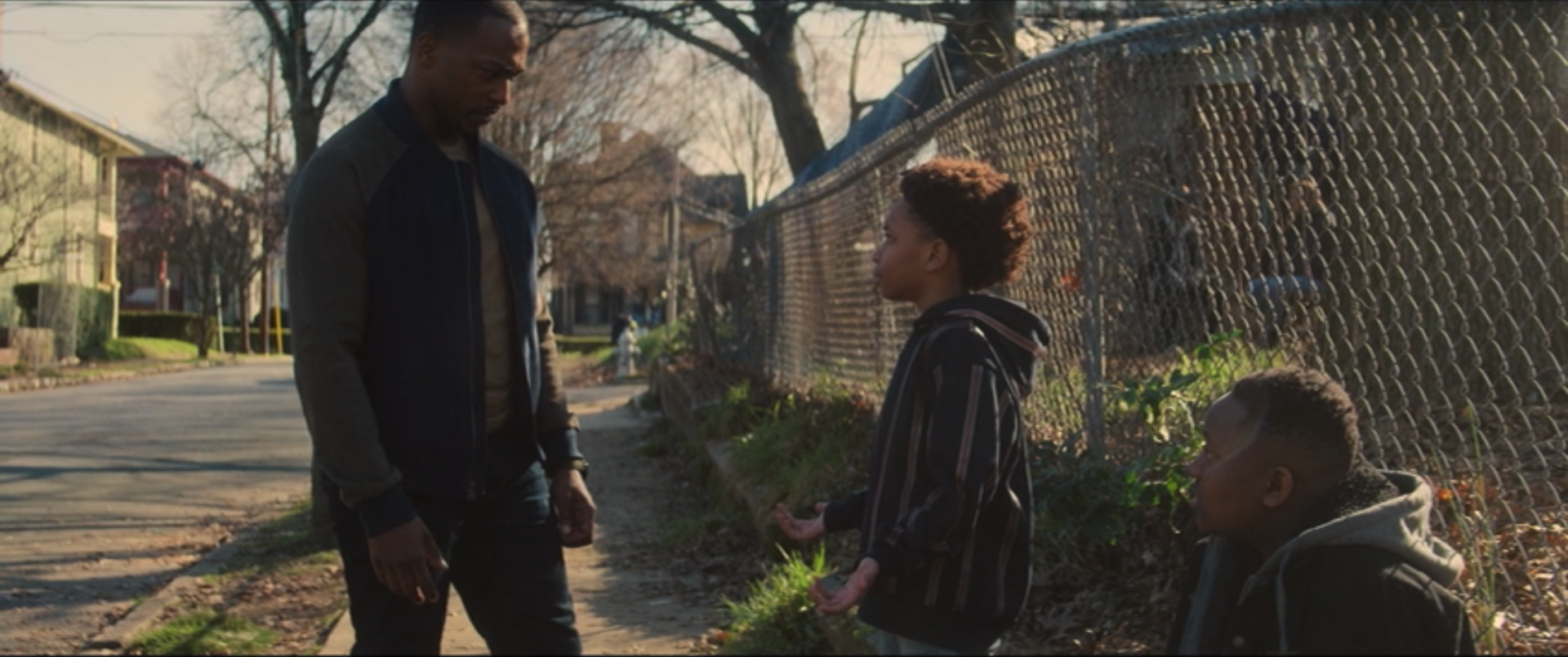
Photo © Marvel Studios 2020
We all know bearing that burden is what made Steve Rogers a hero; however, it is safe to say the weight of that legacy is almost too much for anyone to bear. To Steve, giving Sam the shield made perfect sense. In his heart, he knew Sam also represented and cherished those ideals. However, in the first episode of The Falcon and The Winter Soldier, Sam Wilson says “No, thank you.”
Now, Sam’s reason for saying no, for now, is still “unknown.” He only says, “I did it because I thought it was the right thing to do,” and leaves it at that. Spoiler Alert: Sam Wilson is a Black man in America; WE know precisely why The Falcon did not want that weight. Accepting the mantle and becoming the first Captain America is almost too much for anyone to bear, let alone a person of color. Hello, have you met America?
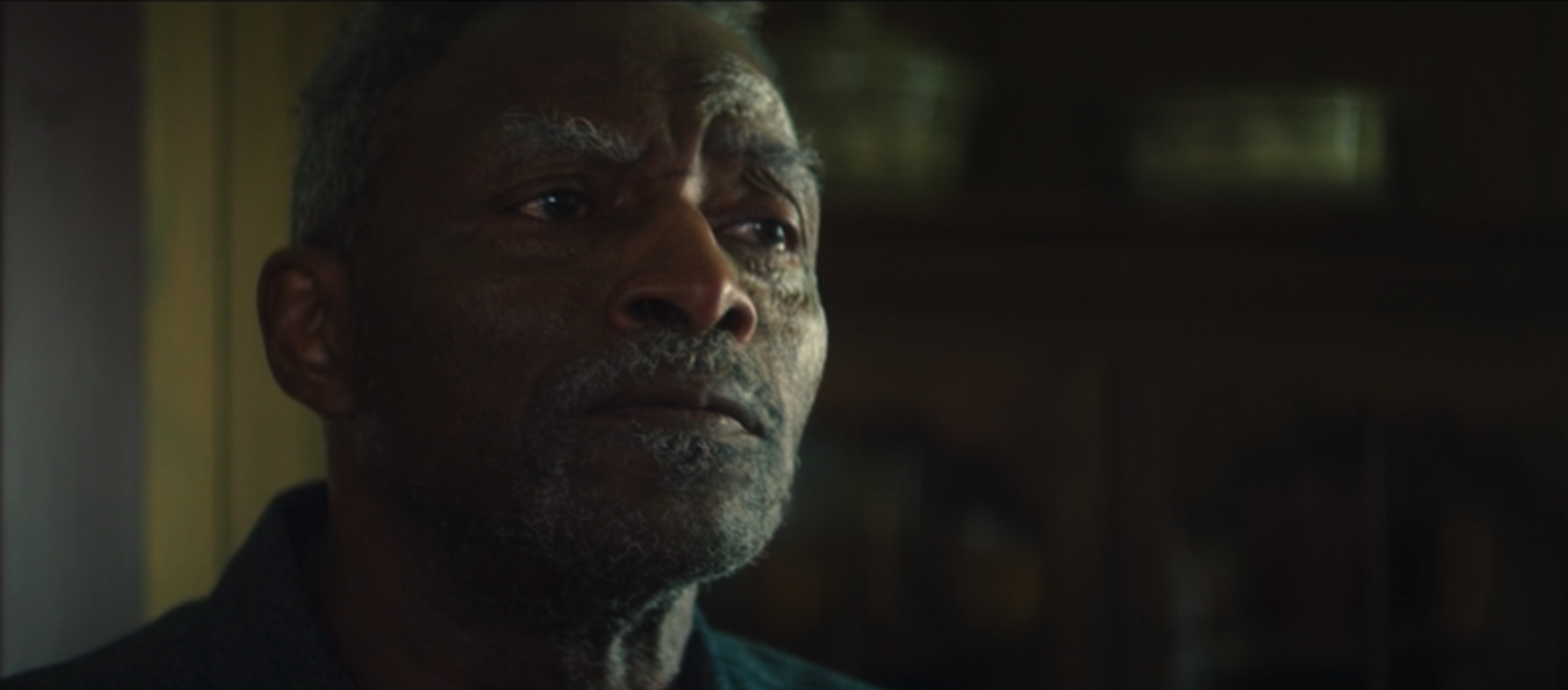
Photo © Marvel Studios 2020
Enter Isaiah Bradley
Before Project Rebirth created Steve Rogers, the U.S. government needed to perfect the Super Soldier serum. Their guinea pigs? The newly arrived 300 African-American soldiers to Camp Cathcart, Mississippi. In “perfecting” the serum to make the “perfect” soldier, 294 Black soldiers died gruesomely. The surviving members became a covert black-ops team carrying out the dirtiest missions to protect the American Dream during the early days of World War II. After only a few missions, Isaiah Bradley was the only survivor among those soldiers. On a final suicide mission, Isaiah steals a Captain America suit—initially intended for the now selected Steve Rogers—and becomes, not the first Black Captain America…but, The First Captain America. Bradley completed the mission as Cap. However, this was indeed a suicide mission and the German army captured him. Hoping to create their own “perfect” soldier, German scientists tortured, dissected, and experimented on Isaiah. It was not until the rescue of the German freedom underground that Bradley would escape his captors.

Upon returning to America, his act of stealing the suit, ostensibly tarnishing America’s good name, was seen as treason by the U.S. military. They promptly hid their “dirty” secret with a court-martial, imprisoning the First Captain America in Leavenworth Prison from 1943 to 1960, when President Eisenhower would eventually pardon him. The complete story of Isaiah Bradley: The First Captain America can be found in the hit 2003 comic mini-series Truth: Red, White, and Black by writer and journalist Robert Morales and award-winning illustrator Professor Kyle J. Baker.
Now back to The Falcon and The Winter Soldier, in episode two rogue super-soldiers mystery abound, so Bucky and Sam travel to Baltimore to talk with someone who knows about the history of the Super-Soldier Serum. There Bucky introduces Sam Wilson to the first Captain America. On the show, Isaiah’s origin is retconned to him being created after Steve and primarily having operated during the Korean War. That’s where he met Bucky. And by that, I mean when the two met in Goyang, a city in Gyeonggi Province of Korea, Isaiah liberally introduced Bucky to “these hands.” A lot of licenses are taken with Bradley’s origin in the show, so seriously check out the comic series. Bucky, however, does not show up in Truth: Red, White, and Black.
Upon learning Project Rebirth’s secret history, Sam Wilson is shaken to his core. Sam’s face becomes a roadmap of the betrayal that Isaiah indeed felt—outrage, sorrow, shame, and back to outrage. For me, this is when the show gets too real. And that is saying something considering this series has many of those moments.
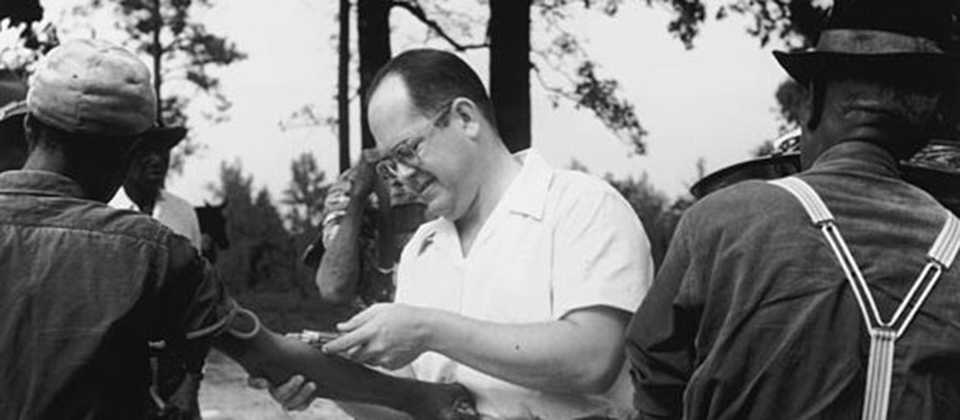
A blood draw during the “Tuskegee Study of Untreated Syphilis in the Negro Male“
We are all aware of the “Tuskegee Study of Untreated Syphilis in the Negro Male,” where between 1932 and 1972, a study with the express purpose of observing the natural history of untreated syphilis was conducted unknowingly on African-American male subjects by the United States Public Health Service (PHS) and the Centers for Disease Control and Prevention (CDC). Isaiah’s story is inspired by the Tuskegee Study showing us that America’s promise is not for everyone. In the comic Truth, we see a Black man fight for the dream he was promised. Despite the times, when it took a Presidential order for a man with his skin color to serve and die for his country, Isaiah Bradley picked up his boots and went to war. His dream was America. And even when the dream betrayed him, he still fought for his country.
Welcome to 2021. Isaiah is a broken man. Everything he trusted and believed in was a lie and used as a weapon against him. Like his white counterpart, he fought for his country, killed for his country, and nearly died for his country. Isaiah was considered disposable, a ghost, a mistake, and the American government ensured Mr. Bradley never forgot it. He did not get parades, Presidential Commendations, or medals; instead, his reward was to be thrown into a hole for 17 years, forgotten, his life’s legacy relegated to myth, rumors, and incoherent whispers.
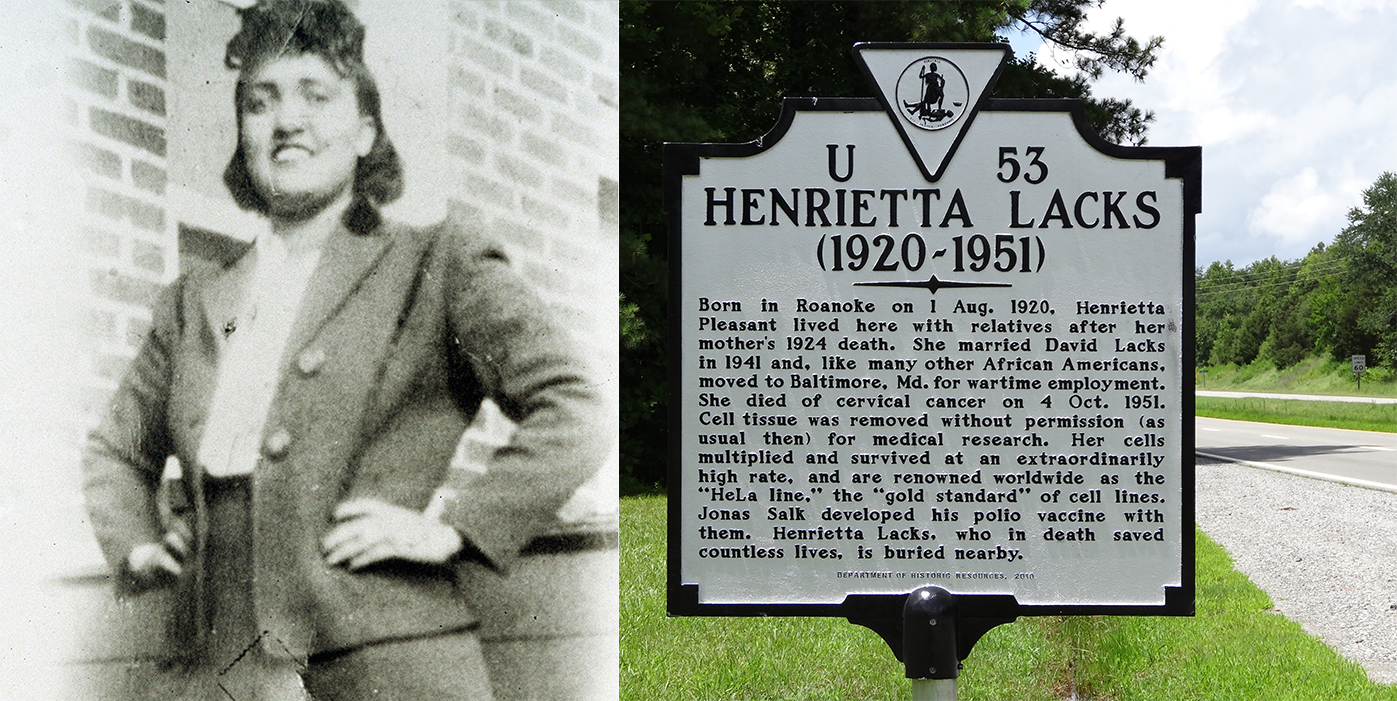
Henrietta Lacks
The idea of the sacrifice of the Black body for America is not a new occurrence. Think of the case of Henrietta Lacks, HeLa cells, and Johns Hopkins University. Lacks was an African-American woman in 1951, whose genetic material was stolen—the official term is unethically cultured. The HeLA cells, as scientists called the material, remain the most important cell lines in medical research because they continue to replicate. Neither Henrietta Lacks nor her descendants were made aware of their ancestor’s “contribution” until 1970, however, I suppose it was nice of the scientists of the time to name the cells after Ms. Lacks. This disregard of the African-American body remains in the memory of the entire community and it haunts us. Is it any wonder there is a wariness of COVID-19 vaccinations in some Black circles? This walk down memory lane reminds you that for most African-Americans, when you are good to America, it is a 50/50 toss-up whether America will be good to you.
This is the struggle I see Sam dealing with and, while it is incredibly insightful, my heart breaks watching this story unfold. Generational trauma due to violence, hate, institutional racism, and the knowledge that the foundation of our nation is soaked in blood from conflicts that, as Ta-Nehisi Coates says, “…was inaugurated not reluctantly, but lustily, by men who believed property in humans to be the cornerstone of civilization, to be an edict of God.”
With that knowledge, would you trust this country to stand with you? America stood with Steve Rogers. Would America do the same for Sam? In Isaiah, Sam sees himself or rather a potential future version of himself. Remember, the past is a prologue. Sam not only has to contend with world-smashers, super-villains, and the Big Three: aliens, androids, and wizards. Now, as “Captain America,” he would have to deal with a country that, since as far back as he can remember, has always considered him not as an American citizen but an American “other.”
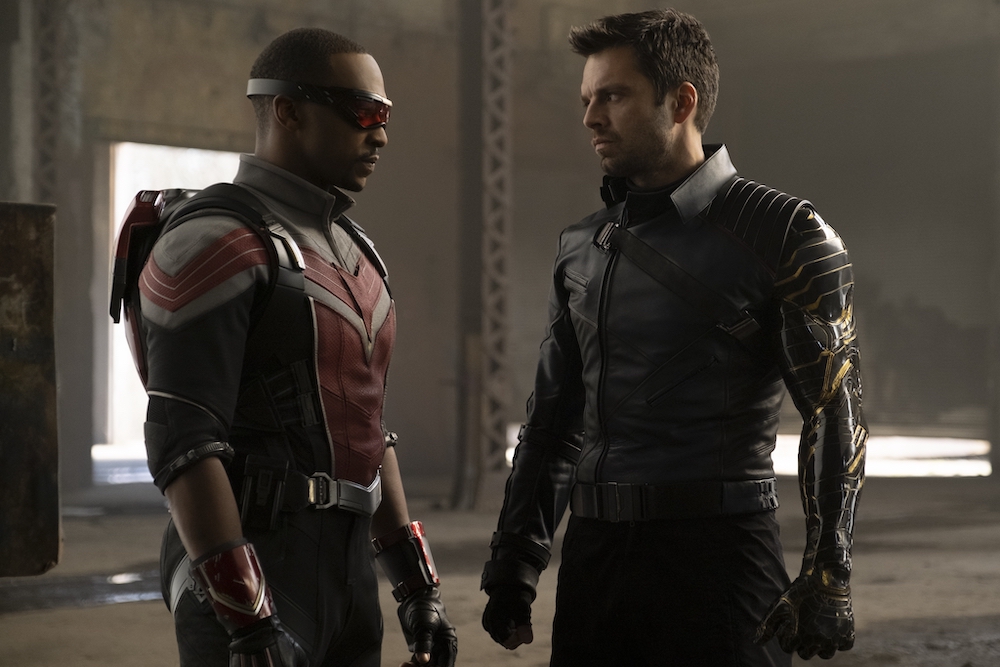
Photo by Chuck Zlotnick © Marvel Studios 2020
A body only worthy of acknowledgment when he serves the purpose of the machine—and, as Isaiah’s life proves, when that usefulness is over, how easily he can be discarded on the steaming heap that is American romantic and revisionist history.
So, where does that leave Sam? If it was me, I would jump in a jet, scoop up Bucky, fly to Africa and get a Wakandan name like the one given to Bucky—he is called the White Wolf. The world created in TFATWS, like ours, is not perfect and is very much broken. While not a mirror, it contains parallels that cannot be ignored. The struggle and disparity in the MCU are dropped onto Isaiah’s shoulders; Bucky, Sam’s family, and America are almost too much to watch. The world needs Captain America now more than ever. Not a guy in a suit posing and spouting anachronistic nationalist pride, but someone who sees community in all things. Steve Rogers’ life, in the end, was about being a symbol for everyone, not just America but everyone.
The power of symbols comes from the fact they are visible signs of invisible realities. Sam, in his heart, knows all too well about the visible realities Black-Americans face. And in his heart he believes in the invisible ideals—that of hope, peace, justice, equality—and he wants to fight for THAT reality. For everyone.
We know Sam Wilson is a hero.
We can see Sam Wilson is Captain America.
Now, we wait for him to see it.
* “All Along the Watchtower” written by Bob Dylan echoes lines in the Book of Isaiah, Chapter 21, verses 5–9: “Prepare the table, watch in the watchtower, eat, drink: arise ye princes, and prepare the shield./For thus hath the Lord said unto me, Go set a watchman, let him declare what he seeth./And he saw a chariot with a couple of horsemen, a chariot of asses, and a chariot of camels; and he hearkened diligently with much heed./…And, behold, here cometh a chariot of men, with a couple of horsemen. And he answered and said, Babylon is fallen, is fallen, and all the graven images of her gods he hath broken unto the ground.”


